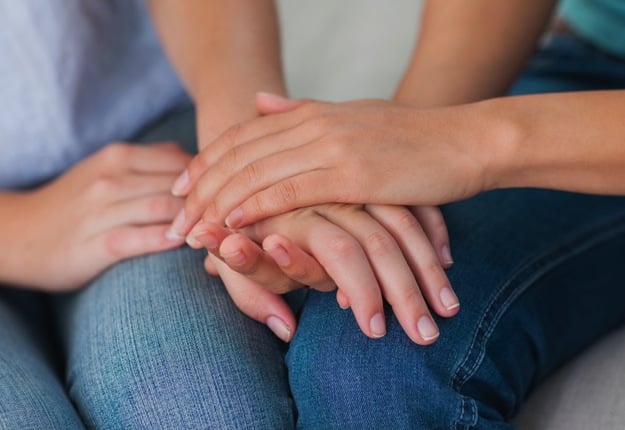If you don’t already know a child or adult with an autism spectrum disorder, you will soon.
With 1 in 100 children being diagnosed with an autism spectrum disorder (ASD), this complex neurobiological disorder is increasingly recognised and much of the stigma that used to surround it has gone.
Nonetheless, if you have a friend or a family member whose young child has been diagnosed, you know that this is a traumatic time for even the most resilient among us.
My own son was diagnosed as being ‘on the spectrum’ many years ago, but the unkind or just plain silly things that people said to me still ring in my ears.
Some words made me want to weep and others made me want to deliver a punch right onto the speaker’s nose.
So here are my words of advice on what NOT to say:
1) Don’t mention Einstein or Bill Gates
There is no comfort in thinking that a very few extraordinary people may have been on the spectrum.
Your friend probably just hopes her child might sleep at night, or wear clothes, or be able to go into a supermarket.
When your child’s diagnosis is new, you just want them to one day speak a few words or to go to school… no need to make a million or be a genius.
2) Don’t mention Rainman
Even if your only experience of ASD is having watched Rainman, just don’t mention that at this point.
Your friend will find no comfort in thinking that their beloved son or daughter may be able to do some amazing memory tricks, and little else.
Rainman didn’t have good early intervention and his life might have been very different if he had.
3) Don’t say ‘oh my child does that exact same thing’
All children do all of the things that stick out in ASD. It’s just the intensity of how much our kids with ASD toe walk, flap, stare at themselves in the mirror, roll cars in front of their eyes, stay awake all night, throw terrifying tantrums etc that makes them different.
Your child’s occasional episodes of similar behaviour are NOTHING… it just sounds glib and it’s not helpful.
And meanwhile your child is probably talking, pointing, turning when you call her name and maybe even saying ‘Mum’ or ‘Dad.’ And that’s the most different difference of all.
4) Don’t go on about your own child’s developmental milestones
It’s great that your son or daughter can ask for a lollipop, help with cooking, tie their shoelaces, ride a bike… but please don’t labour the point.
It hurts, it really does even though we parents of kids on the spectrum desperately wish it wouldn’t.
5) Don’t tell us about miracle cures you’ve read about on the Internet
Any nitwit can Google seductive, expensive ‘cures’ for autism.
It takes a real friend to offer help, to really understand this disorder, to learn what is known to work and what isn’t.
It takes a real friend to stick with a family in distress through thick and thin.
There are many, many ways to assist a child with autism and none is miraculous, none offer a ‘cure.’
Some of our kids grow up to lead the typical sorts of lives that others lead, some are truly disabled and will need care all their lives.
When a child is little and newly diagnosed, your friend has no idea of what the future holds. It’s terrifying.
But you can hold your friend’s hand, befriend their child and walk with them on their journey.
Be the friend who is there for the long haul.
Be the friend who watches a young child work so, so hard to learn and to grow.
Be the friend who celebrates the miniature milestones that mean the world to this family.




















4:35 pm
1:07 pm
8:26 pm
8:08 pm
1:38 pm
1:24 pm
3:24 pm
8:16 pm
3:46 pm
10:04 pm
-

-
-
Seana Smith replied
- 06 Jan 2015 , 8:24 pm
Reply10:10 pm
10:40 am
1:48 pm
-

-
-
kazjl replied
- 22 Feb 2015 , 4:26 pm
Reply10:15 am
2:49 am
4:58 pm
12:53 am
11:06 pm
11:30 am
11:11 pm
- 1
- 2
- 3
- »
Post a commentTo post a review/comment please join us or login so we can allocate your points.